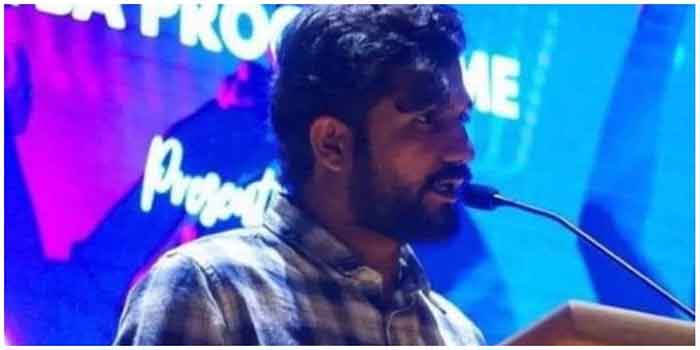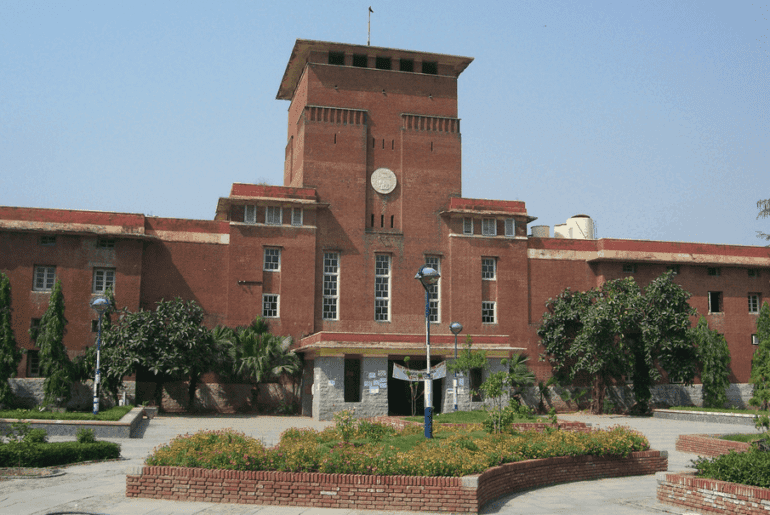On 26 April, 2024, students and professors across Delhi University came together for an online memorial for the one-year death anniversary of Professor Samarveer Singh, seeking to honour his legacy and work, but to also engage in discussions about the systemic issues and conditions in the academic circuit that forced him to take his own life.
Trigger Warning: Mentions of Suicide
Samarveer Singh, a former ad-hoc Assistant Professor in the Department of Philosophy at Delhi University’s Hindu College, committed suicide a year ago, on 26 April, 2023, days after he was displaced in the ongoing recruitment process. Samarveer was abruptly dismissed, despite hopes for a permanent position at the institution. His unexpected death prompted protests from students and faculty members at Delhi University, who decried it as an act of “institutional murder” and also argued that a mere two-minute interview should not outweigh years of dedicated service and experience.
Students and professors all across Delhi University came in solidarity over a memorial held online on 26 April 2024, to remember Professor Samarveer and his scholarly and creative works. The memorial involved recollecting anecdotes about him by his students and fellow colleagues, while also including discussions on the nature of exploitative ad-hocism and the displacement of teachers across the university.
The organiser, a student from Delhi University, on the condition of anonymity, shared his objective of organising this online memorial for Samarveer Singh and the concerns of students like him who plan on pursuing a career in academia:
Arts Faculty, the site of dissent and protest on the North Campus, which also violently removed Dr. Ritu Singh’s protests had nothing but deafening silence on 26 April, 2024. A deafening silence that came not from a collective recognition of the unfortunate murder but from the lack of it. Seeing that no memorial for him was planned, I decided to conduct an online memorial to him on 26 April and invite his students, colleagues, and other professors of the university to speak about him as a person, a professor, a thinker, and a poet to remember him with the help of anecdotes related to him, his poems, and recordings of songs sung by him. The purpose behind conducting the memorial to him was not merely to remember him but also to take cognizance of and resist the larger issue of ad-hocism that was the reason behind his death and which made it an institutional murder. His death was a heart-wrenching moment and a dark spot of shame on the history of this university, the apathy associated with which seems to be the final nail in the coffin of this university. I and many students like me who want to become professors have been shattered by his death and wonder if our dreams will ever come true. If they do, what cost would we have to pay for it?
Students of Professor Samarveer joined the memorial to recount how they had always been amazed by his innate passion for philosophy.
He often spoke about his dreams of visiting France, and his eyes would light up when discussing art, film, theatre, and poetry. He was undoubtedly someone who harboured a profound love for his discipline of philosophy. An original thinker and a prolific reader.
They continued to elaborate on the challenges Professor Samarveer faced with being constantly targeted, overburdened with work and responsibilities, and ultimately losing hope.
He hadn’t seen his family in a year because he was constantly burdened with college administration work. He faced dismissal twice, and during a certain period, we also witnessed him being very unfairly targeted by other teachers. Samarveer sir has dedicated 7.5 years to teaching, only to receive this mistreatment.
We didn’t even receive official news from our college about his passing; it was through an Instagram post by a professor that we learned of his demise. We knew that he couldn’t finish his Ph.D. due to being overwhelmed with administrative tasks. We saw how students disregarded us when we sought a condolence meeting because they felt that it might disrupt Mecca, the Annual Fest. We saw our teacher losing hope and questioning the merit of those appointed.
Discussing the pitfalls of ad-hocism and the current state of the university, they added how important it is to keep in touch with the professors who may have been displaced.
Unfortunately, nothing has changed. Last month, another teacher from the philosophy department of Hindu College got displaced. It is important to be in touch with your professors; a simple gesture like asking how they are can make a world of difference and might help with their loneliness. Ad-hocism is inhumane, and a brief interview without considering the minimal academic qualifications can never be the right method for appointing a new educator.
Rudrashish Chakraborty, an Associate Professor in the Department of English at Kirori Mal College, comments on the larger causes behind the death of Professor Samarveer:
Samarveer’s unfortunate death is a case of institutional murder, expedited with precision by the apathy and complicity of the administration both at the college and university levels. The fact that he was pushed to the extreme of taking his own life suggests the adverse conditions created for the ad-hoc teachers by the system that treats ad-hoc teachers as captive labour force: to be used till the last drop of blood and then to be disposed of once the job is done. The University of Delhi has witnessed an unprecedented displacement of ad-hoc teachers in the last one and a half years through farcical interviews. The displacements were targeted, premeditated, and meant to eliminate teachers who were upright and independent and who invested in the academic and intellectual lives of their students. The objective of displacement was to fill the university with pliant minds and also to create a situation of fear and greed so that nobody should speak their minds against any injustice.
Jatin Chahar, a second-year student at Ramjas College, made an empowering yet heartwarming statement on the role of solidarity in such times and how important it is to be there for each other.
Memorials of this sort are truly brave initiatives by students when the so-called stakeholders of our university choose to be passive observers of the injustices. One thing that has to be central to our constant struggle against power is to build solidarity amongst ourselves. True solidarity will only be formed when we let each other know from time-to-time that we are there for each other. So I thank everyone for being here today, and I want to assure everyone that we are here for all of you. We have learned from our teachers in the English and History departments that it is important to keep going.
Samarveer Singh represented a safe space for many of his students, a teacher who sought to impart the best of the knowledge he had received and establish a real connection with his students that extended beyond the confines of the classroom spaces. Many students who joined the memorial lamented the loss of their institutional safe spaces, represented by professors like Samarveer Singh, who have been unfairly displaced. They expressed the feeling of being lost and desolated in college, but their professors, who have now been displaced, had provided a sanctuary for them in their classroom spaces.
Prof. Rina Ramdev from the Department of English at Sri Venkateswara College expressed her hope after seeing this display of solidarity in the memorial while remembering Samarveer Singh:
I’m really glad to see students from different colleges here for Samarveer’s memorial. Unfortunately, departments and colleges stay silent and carry on with no memories of those displaced. And yet, there is something gutting—an absence and a deep sense of loss—that has left its mark on our classrooms, our university, and on us. We should be back on the streets organising, protesting, and not ceding space. This online memorial is itself a reminder of all that could slip away. But the strength of our students and this student-teacher unity is our greatest hope.
The memorial ended on a heartening note with the reading of Professor Samarveer’s poems and works.
Hope still leaks.
Through the cracks and gaps in the walls and
the windows.
– Untitled by Samarveer Singh
Read Also: Academia aur ye Article, Paani Mai Gaya, Chapak!
Featured Image Credits: Counter Currents
Sarah Nautiyal and Dhairya Chhabra







